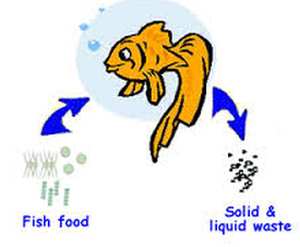

MedFriendly®


Excrete/excretion
Excrete means to discharge from the body as waste,
which is an essential process for all life forms. The
term “excretion” can also be used to describe the
process of excreting but it can also be used to describe
the substance that is excreted. For example, when
feces (poop) are excreted from the intestines, feces
can be referred to as a type of excretion. The kidneys,
lungs, and skin, play the main role in excreting
substances from the bodies of animals. In this way,
animals have special excretory organs. As other
examples, the skin excretes wasteful products via
sweating and urine is excreted from the urinary bladder.
Excretion of waste.
FEATURED BOOK: What's Your Poo Telling You?
Excretions are usually, but not always, the products of metabolism. Metabolism refers to
the chemical actions in cells that release energy from nutrients or use energy to create
other substances. The process of excreting means that something is being separated
from the blood and sent out of the body. In contrast to animals, single-celled organisms
excrete substances from the surface of the cell. It is important not to confusion an
excretion with a secretion. In a secretion, unlike an excretion, the substance that is
released has a function to perform after it is released from the body. An example of a
secretion is a tear, which is released from the lacrimal apparatus and has specific
functions (e.g., cleaning and lubricating the eye). By contrast, once urine (an excretion)
leaves the body, it has no specific function. Excrete comes from the Latin word
"excerene," meaning "to separate."
"Where Medical Information is Easy to Understand"™















